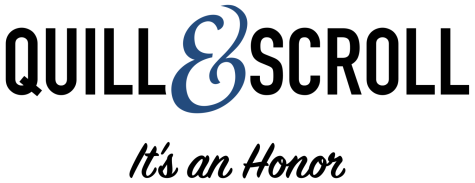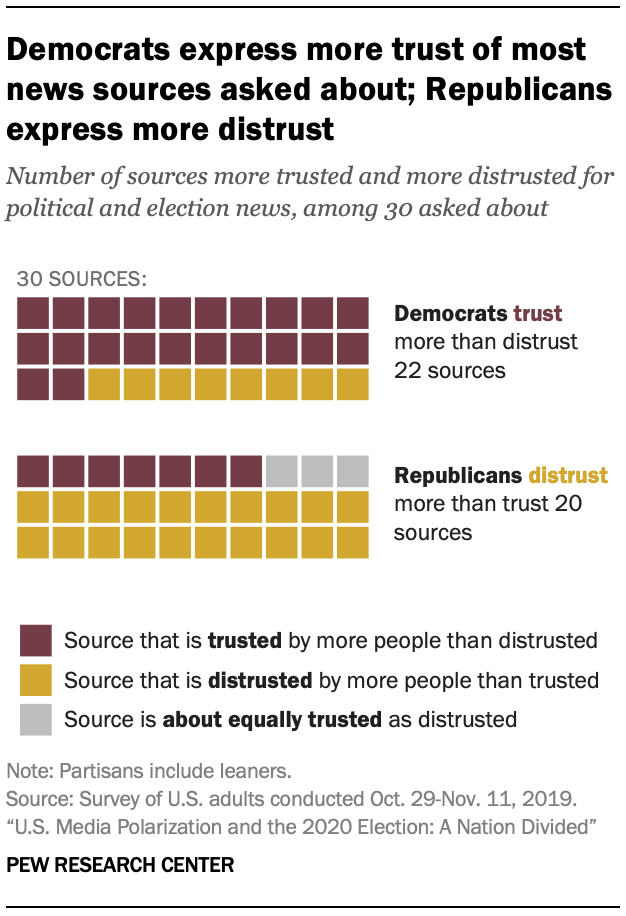THE WEEKLY SCROLL
March 25, 2021
News, tips and advice from Quill and Scroll
The Lede
N.J. Teacher receives settlement
Administrators instructed her to censor her students’ yearbook
New Jersey teacher Susan Parsons was suspended from her teaching job and yearbook adviser position after receiving backlash for removing potentially inflammatory content from the school yearbook, per administration instruction. The district reached a $325,000 settlement with Parsons on Tuesday.
A New Jersey teacher says her school's administration told her to remove a reference to Donald Trump from a student’s shirt in a photo. She was suspended in 2017 after the edit ignited a national firestorm over free expression and political opinion. https://t.co/jvEVfeqmAC
— NYT National News (@NYTNational) March 23, 2021
Parsons was originally suspended in 2017 after removing a “Make America Great Again” slogan from a student’s yearbook photo. The edit was made after instruction was given by administrators.
This was not the first case of edited content making its way into the yearbook after administrative interference. Other quotes related to Mr. Trump, as well as hand signals, bumper stickers, and other content had been edited to appear differently than their original quote or image.
In Parsons’ lawsuit, she stated the school covered their tracks by placing blame for all edits under her jurisdiction. At the time of the original backlash, the school’s superintendent stated the incident equaled, “censorship and the possible violation of First Amendment rights.”
The initial censorship continued to receive traction to the point Parsons was receiving personal threats.
Race, region noted in virtual learning
Government data reveals disparities in school reopenings
Almost half of the nation’s elementary schools were open for in-person learning last month, according to a survey conducted by the Biden administration. When elected, Biden promised to have most K-8 schools open in his first 100 days in office. We are over halfway through that deadline.
In total, nearly three-fourths of elementary and middle schools were open for in-person or hybrid learning. Data will continue to be updated each month of the school year. The survey tracks the type of learning being completed as well as the decision to opt-in or out of in-person/hybrid learning.
The amount of time spent online in instruction varied greatly, from five hours engaged with a live teacher to two hours or less one day a week.
The data also revealed a large difference on the type of learning students are choosing to complete dependent on their location. In the South and Midwest, nearly 40% of eighth grade students were completing full-time in-person instruction in January, compared to only 10% of eighth grade students doing the same in the West and Northeast.
Additionally, of the students surveyed, almost half of white students were learning in-person, while nearly 60% of Hispanic and Black students were learning entirely remotely. 68% of students of Asian descent were learning remotely, while only 15% were attending in-person classes.
Since the release of data, the Biden Administration is urging schools to prioritize racial and regional inequities by committing nearly $120 billion in relief aid. Disparities include race, region, and ability, and student studying English as a second language.
High school students were not included in the survey — Biden’s promise to reopen as many schools as possible was limited to elementary and middle schools.
AP journalist released
Arrested three weeks ago in Myanmar while reporting on story
Associated Press (AP) journalist Thein Zaw was released Wednesday after being detained for three weeks in Myanmar. Zaw was arrested, along with nine other journalists, during a Feb. 27 protest in Yangon, Myanmar, and were being held without bail.
Since Feb. 1, 40 journalists have been arrested after the coup that expelled elected government Aung San Suu Kyi. Thousands of protestors have also been arrested and more than 600 released.
The AP and other press freedom organizations have called for the release of Zaw and other detained journalists in Myanmar.
AP Vice President for International News Ian Phillips: “We urge Myanmar to release all journalists and allow them to report freely and safely on what is happening inside the country.”
This video story produced in English by German news giant Deutsche Welle focuses on the crackdown on journalists by the military-run government:
Zaw was arrested while photographing police officers. Footage shows Zaw stepping to the side of the street and being surrounded by officers, some armed.
Upon Zaw’s release he was seen waving and smiling to photographers while leaving Insein Prison, well-known for holding political prisoners for years. His case was dismissed by a court judge after it was revealed he was doing his job at the time of his arrest.
For more information on endangered and detained journalists from around the world, visit the Committee to Protect Journalists website.
It’s An Honor
WPM Results!
McCallum HS wins Blue and Gold Staff Excellence Award
McCallum High School of Austin, Texas has won the 2021 Blue and Gold Award for Staff Excellence in the 2021 International Writing, Photo and Multimedia Contest. This is the third time in four years McCallum has walked away with top honors — MHS previously won the award in 2018 and 2019.
Students from six countries submitted 2,508 entries in 34 categories, and judges chose 273 winning entries produced by 320 students, or National Winners. Every winning entry earns a Quill and Scroll Gold Key. Individual winners are listed at the bottom of this page.
Quill and Scroll honors Sweepstakes Winners (First Place) in every category with a special certificate. All National Winners (Sweepstakes, Second Place, Third Place and Honorable Mention) receive award letters and are eligible to apply for Quill and Scroll Scholarships, which have an application deadline of May 15. Certificates and letters will be mailed to schools soon. If you see any errors in the names below, please contact Quill and Scroll ASAP by emailed [email protected].
Schools with the most winning entries receive Blue and Gold Awards for Writing, Visuals and Overall Excellence. We award the top three performing schools in each Award Category.
To view a full list of winners, visit our page here.
A Google slide show t including all first-, second- and third-place winners’ work will be shared next week with judges’ comments included. If you did not enter WPM 2021 and would like a copy of the slideshow, email [email protected].
Scholarships!
Apply now for Quill and Scroll scholarships before applications close
The Quill and Scroll scholarship applications for both students and advisers are open now on our website! Interested in applying? Read below for information on both student and adviser scholarships.
Each year we award a number of scholarships to students and advisers focused on continuing their education or career in journalism. Scholarships are funded by our Quill and Scroll scholarship fund. In 2020, we awarded four student scholarships and one adviser scholarship.
Student Scholarships
All Quill and Scroll members as well as national winners in our Yearbook Excellence Contest and International Writing, Photo and Multimedia Contest are eligible to apply for our student scholarships. Applicants must intend to major in journalism or a related area of communications to qualify for the award. The scholarship can be used for tuition, room and board at any college or university. The top prize is $1,500, with other prizes of $500 available.
The student scholarship application deadline is May 15, 2021. Winners will be notified by June 1, 2021.
Adviser Scholarship
The Lester G. Benz Scholarship of $500 is available to teachers who:
- teach at a Quill and Scroll school,
- have at least one year teaching high school journalism and/or advising publications,
- plan to return to the high school classroom and media advising next year AND
- will apply the information gained in the course work, seminar or workshop taken as a result of this scholarship.
Two letters of recommendation are required to apply. Applications are due by April 30, 2021. Last year’s winner was Laura Bowe of the King School in Connecticut.
Visit here for more information on adviser scholarships.
Help for editors
Quill and Scroll student board establishes online discussion board for student editors
A note from Kathleen Ortiz, Kingwood Park HS Student Advisory Board member
Hi there! On the Quill and Scroll Student Advisory Board we’re working on projects, and one of them is a monthly newsletter and a Discord chat for editors to use, so they can give and receive help, tips and ideas from other editors.
Advisers, if you could please send this Discord link to any of your editors who might be interested in being part of this new initiative, we would really appreciate it. We would like our network to really encompass and connect as many editors as we can.
Induction season!
It’s time to honor seniors and induct members
It’s that time of the year when Quill and Scroll chapters should be nudging their advisers to think about honoring seniors and inducting new members — be they sophomores, juniors or seniors — into our international journalism honor society.
We’re able to take and fulfill orders, even as Quill and Scroll staff work from both our home offices and our offices at the Adler Journalism Building on the University of Iowa campus.
We published this update in late 2020. It is still valid and includes a simplified order form for schools and advisers willing to pay via credit card, and an offer to host an online induction ceremony for your students. The sooner you induct new members, the sooner they’ll be able start planning chapter activities in the spirit of Quill and Scroll. Here’s a link to a PDF file of the Q&S Chapter Handbook if you don’t already have it.
We encourage advisers to submit their induction orders sooner rather than later to ensure speedy fulfillment and delivery. As we get closer to the end of the school year, our order numbers tend to increase. Order now to receive your materials sooner!
A reminder about cords:
Students MUST HAVE BEEN OR WILL BE INDUCTED into the Society to earn the honor to wear an Honor Cord (GHC) or Honor Cord with Insignia (GCI). If you order cords for non-members, please choose the Non-Member Cord Option (NCD). Quill and Scroll exists because of the special unifying bond brought about by membership and the lasting legacy of the induction ceremony.
And, as always, feel free to email [email protected] if you have any questions.
Podcast!
JEA President Sarah Nichols discusses JEA events, Q&S values
We welcomed Sarah Nichols to the SOURCE, and she obliged by discussing how she uses Quill and Scroll’s eight guiding principles as lessons for her students to share. In addition, you’ll hear about managing JEA during the pandemic, the status of the JEA Advisers Institute, the National High School Journalism Conference and so much more.
It’s required listening if you’re in scholastic journalism or care about it.
What’s Viral?
NHL looks to Latino viewers
League agreement with ESPN extends availability to Latin America
 The National Hockey League (NHL) signed an agreement with the Walt Disney Company for a seven year stint to bring NHL back to ESPN starting next season. The agreement will now give NHL jurisdiction within Latin America and the Caribbean, where ESPN is available.
The National Hockey League (NHL) signed an agreement with the Walt Disney Company for a seven year stint to bring NHL back to ESPN starting next season. The agreement will now give NHL jurisdiction within Latin America and the Caribbean, where ESPN is available.
This change is one of many efforts made by the NHL to expand its fanbase into Latin America. The 2019 season brought its first Latino majority owner to the league. The Arizona Coyotes welcomed their first Latino president that same year.
Now, NHL games are being broadcast in Spanish on Spanish radio channels, marketed on league specific Spanish websites, and are expanding their junior programs into Mexico City.
The NHL, however, is no stranger to Latino players. The expansion hopes to find a new fan base and establish itself within Spanish speaking countries.
Streaming replaces theaters on Disney+
‘Cruella,’ ‘Black Widow’ will premiere on streaming application

Photo by Mika Baumeister on Unsplash
Walt Disney Company announced Tuesday arguably it’s two biggest movies of the summer will now premiere on the streaming service Disney+ in conjunction with their premiere in theaters.
Disney’s live action “Cruella” and the Marvel spin-off “Black Widow” will both premiere on Disney+ in conjunction with their release in theaters. To view the movies on Disney+, which release May 28 and July 9, consecutively, can be viewed for $30 – on top of the streaming package price. This method was used for the spring release of “Raya and the Last Dragon,” but Disney has not revealed collected data yet.
Disney’s Distribution Chief Kareem Daniel stated, “By leveraging a flexible distribution strategy in a dynamic marketplace that is beginning to recover from the global pandemic, we will continue to employ the best options to deliver The Walt Disney Company’s unparalleled storytelling to fans and families around the world.”
Future movies coming out of Disney will follow the same pattern as its recent releases, with some bypassing theaters altogether. Pixar’s “Luca” will premiere exclusively on Disney+ June 18.
Disney’s decisions mark a move away from traditional movie releases. While coming out of the Pandemic, other companies are moving up their theater releases, rather than waiting for their original release date.
Cinnamon.. shrimp crunch?
Husband of nineties sitcom star finds crustacean in cereal box
Comedian and writer Jensen Karp started his Tuesday morning with a big box of Cinnamon Toast Crunch… featuring a few shrimp tails.
Carp, who is married to Danielle Fishel Carp of “Boy Meets World” and “Girl Meets World” fame, quickly photographed the contents of the box and posted to Twitter after sending in a complaint to the cereal maker, General Mills. The posts quickly gained viral attention on social media.
Ummmm @CTCSquares – why are there shrimp tails in my cereal? (This is not a bit) pic.twitter.com/tTjiAdrnVp
— Jensen Karp (@JensenKarp) March 22, 2021
Something regarding the stupid “Did he fake this?” take: there are black items COOKED ONTO the squares and tons of it at the bottom of the bag, in addition to shrimp tails and other SUGAR COATED junk. Also, it’s only “viral” because of their insane response. I would’ve dropped it pic.twitter.com/WOt9j2V0sg
— Jensen Karp (@JensenKarp) March 23, 2021
Karp was accused of pulling a publicity stunt after his tweets gained traction and the identity of his wife was revealed. However, Karp shared all interactions he has had with General Mills on his Twitter.
The “black items” in question? What may be, rat poop.
Karp is currently taking the box of cereal to a third party laboratory to test the items within the bag of cereal.
As noted in a “New York Times” article, General Mills has encountered problems with shrimp related items in the past. In 2011, a Michigan blueberry packer sued the company after its products appeared to be contaminated with shrimp.
Just A Thought
Build a Culture of Credibility
Eight activities make your journalistic media more credible to your audiences
By Jeff Browne
Q&S Executive Director
The news that Americans don’t generally trust news is not new.
Last year’s report by the Pew Research Trust showed that we trust and distrust media sources based on our political views. Of the 30 media evaluated, trust broke down like this:
Some Americans have given up on traditional news media and turned to social media — with all of its shortcomings and gateways to disinformation and propaganda — for their media fix. And that’s a problem, Pew found, because those people end up less informed and less knowledgeable about the issues that affect them.
Can that affect how communities perceive the journalists working on high school and college papers? Of course. How many of you — as student journalists or journalism teachers — have been asked by parents or others in your community if you teach “fake news”?
Before that trust in traditional journalism bleeds too far into our student media, here are eight activities that your school can engage in to make sure you build a culture of credibility that benefits student journalists.
- Teach news literacy across the curriculum and in every journalism class.
- Review codes of ethics early and often.
- Establish and reinforce rigorous reporting guidelines.
- Set up a thorough editing (quality control) system.
- Admit and correct mistakes promptly and prominently.
- Communicate with your audience(s).
- Solicit review from knowledgeable outsiders.
- Start a fact-check enterprise.
First, there are more and more resources available for you to teach news literacy in your journalism classroom as well as other classes you may teach. But is your school on board? Are you and your students reaching out to other departments to see if they’re using those same resources? Does every student have a chance to understand the difference between news and opinion, propaganda or lies? Is your state taking any steps toward establishing media literacy as a required discipline?
Second, when and how often do you teach journalistic ethics in your class? Is it set aside for just a certain unit, or do you re-visit your code of ethics for every assignment? Is it posted in the classroom? If you don’t have one, we recommend printing out this poster of the Society of Professional Journalists Code of Ethics, which we have adopted here at Quill and Scroll.
Third and fourth, work with your editors and staff about establishing and reinforcing tough reporting guidelines and an equally rigorous quality control system. Ask yourself: How many sources is enough? What types of sources do we consider credible? Do enough eyes read this before it goes to print? Do we have diversity of representation and viewpoint looking at stories before they print?
Next, be upfront and honest about your corrections and clarifications. Don’t hide from your mistakes, and place corrections prominently in your publications. But at the same time, don’t automatically change content because someone claims you got something wrong. Check it out.
Of course, we always want to communicate with our audiences, but sometimes social media and other anonymous means simply raise the heat under what could have been a calm conversation. Are you asking your readers, viewers and listeners what they’d like you to cover, to investigate, to highlight? Do they get a sense that you’re trying to find information to make their lives better? Be forthright about the processes you use to do your coverage. Be transparent in all that you do. Maybe you could put together a presentation for the whole school about your standards and the standards of credible journalism.
On the same note, you could establish a review board of student media alumni, professional journalists, local college professors and even politicians to provide an overview of what they see in your students’ work. Of course, critique services like our News Media Evaluation and other student contests serve as positive feedback mechanisms, and every student medium should be evaluated yearly, at minimum.
Finally, maybe your student publication is ready to start a fact-checking enterprise. That doesn’t mean they have to look into statements by national politicians — there are plenty of sites that already do that. Your students could look for single statements made by influential people in social media, textbooks, and even popular culture to help debunk myths in your community and among their peers.
We have a long way to go to establish journalistic credibility in the world, and we can all take small steps now that can help build that credibility over the next decade and longer.

